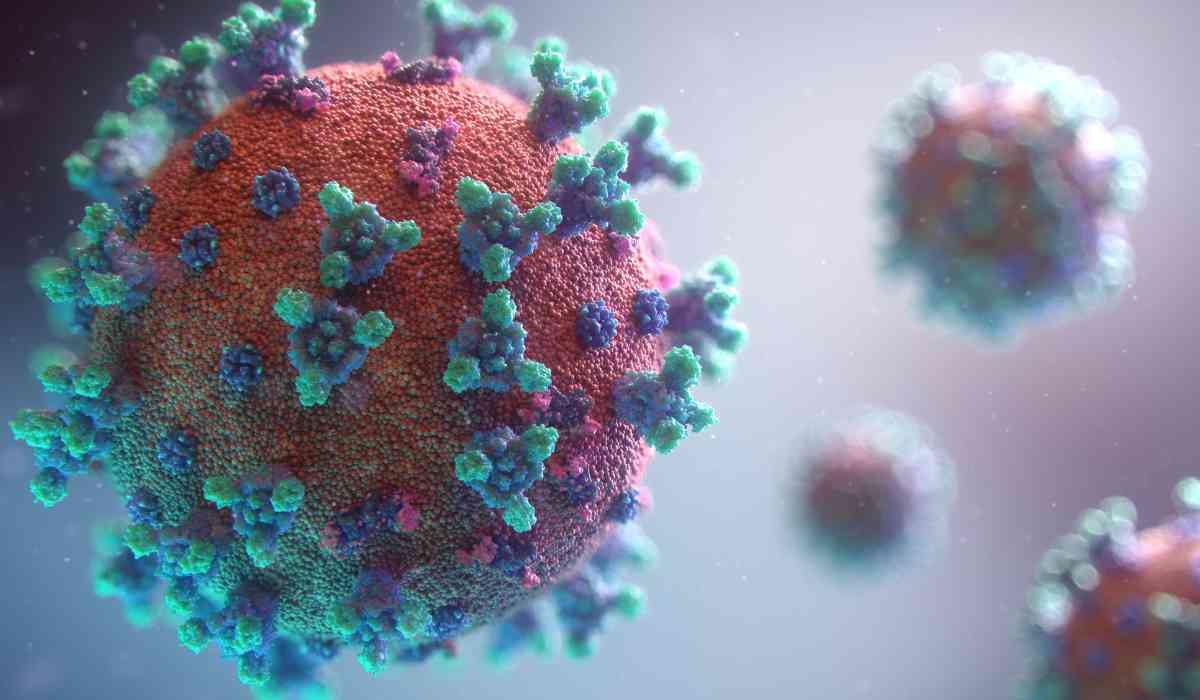According to the China-based Global Times report, the number of patients treated at fever clinics in Chinese has witnessed a decline since New Year's Day. Chinese health authorities said on Sunday, there is a possibility of a rebound in the COVID-19 infection epidemic during the month of January.
National Health Commission spokesperson Mi Feng said that the number of patients received at fever clinics across China has witnessed a fluctuating downward trend. At present, respiratory diseases mainly influenza, and the infection of COVID-19 is at a relatively low level.
You may read also:JN.1 - All You Need To Know About The New Covid Variant Found In Kerala
Data since New Year's Day show that the positive rate for Covid-19 tests in sentinel hospitals has been less than one percent. However, Wang Dayan, director of the China National Influenza Centre, reports an increase in the JN. 1 variant strain.

Photo Credit: CGTN News
Experts expect various respiratory pathogens to alternate or co-circulate in China this winter and spring, with influenza viruses dominating in the short term. Wang warned of a possible Covid-19 rebound in January due to the continued import of the JN. 1 variant strain, a drop in domestic influenza, and a decline in population immunity.
He further added that it is difficult to distinguish between seasonal influenza caused by influenza A and influenza B viruses in terms of clinical symptoms, and that different types and subtypes of influenza viruses coexist during the same flu.
"The immune response generated after contracting influenza A does not provide effective immune protection against influenza B, which means that even if one has had influenza A during the epidemic season, there is still a possibility of being infected with influenza B," said Wang.
He emphasised the importance of improved monitoring and early warning as the Spring Festival and winter vacation approaches, which could hasten the spread of respiratory diseases due to increased movement and gathering of people. He also advocated for timely health consultations and referral services for the elderly, pregnant women, children, and patients with chronic diseases, as well as vaccinations.
Reported cases in India
The number of cases of COVID-19 sub-variant JN.1 has surpassed 1,000, with Uttar Pradesh joining the list of 16 states and union territories that have detected its presence, according to INSACOG.
According to data compiled by the Indian SARS-CoV-2 Genomics Consortium (INSACOG), Karnataka reported the most cases (214), followed by Maharashtra (170), Kerala (154), Andhra Pradesh (189), Gujarat (76), and Goa (66).
Telangana and Rajasthan have recorded 32 JN. According to the data, Chhattisgarh has 25 cases, Tamil Nadu 22, Delhi 16, Uttar Pradesh 6, Haryana 5, Odisha three, West Bengal two, and Uttarakhand one.
So far, 1,013 cases of JN.1 have been detected across the 16 states and union territories.The states and Union Territories have been urged by the Centre to remain vigilant consistently in light of the rise in COVID cases and the identification of the JN.1 sub-variant within the nation.
Should you worry about the JN.1 subvariant?
The JN.1 sub-variant, a new sub-lineage of the BA.2.86 (also known as Pirola), is an offshoot of the widely circulating Omicron variant. Experts have warned that it appears to be more immune evasive, and has been identified as a Variant of Interest (VOI) by WHO in November.
As the JN.1 COVID-19 subvariant spreads rapidly across regions, including India, one might consider these questions. According to the World Health Organisation, "...JN.1 continues to be reported in multiple countries, and its prevalence has been rapidly increasing globally..." This is due to the global health organization's classification of JN.1 as a "variant of interest (VOI)".
So far, the infection caused by the JN.1 subvariant has been reported as mild. Dr Soumya Swaminathan, former DG of the Indian Council of Medical Research (ICMR), stated in December that there is currently no data to suggest that this variant JN.1 is more severe. "...we don't need to worry because we don't have any data to show that this variant JN.1 is more severe.
#WATCH | On JN.1 COVID variant, Dr Soumya Swaminathan, Former DG, Indian Council of Medical Research (ICMR) says, "We need to be cautious, but we don't need to worry because we don't have any data to suggest that this variant JN.1 is more severe or it's going to cause more… pic.twitter.com/HRcpgUjCWj— ANI (@ANI) December 21, 2023
What WHO Says?
Maria Van Kerkhove, a WHO official, stated that all authorized COVID-19 vaccines still offer protection against severe illness and death. In a video message, she mentioned that this protection extends to all existing variants, including JN.1. The global health organization also confirms that XBB.1.5 monovalent vaccines are expected to be effective against JN.1.
According to the World Health Organization (WHO), there are, however, certain concerns to consider.
Dr @mvankerkhove talks about the current surge in respiratory diseases #COVID19 and JN.1 subvariant.
WHO continues to assess the situation. Follow WHO's public health advice to keep your families and friends safe during this holiday season. pic.twitter.com/HvAZVMMN49— World Health Organization (WHO) (@WHO) December 17, 2023
1. "The variant is fast growing across all WHO regions with consistent SARS-CoV-2 sequence data sharing and has become the most prevalent variant in some countries,"
2. The World Health Organization (WHO) suggests that JN.1's immune escape potential is influenced by the immune background of the tested population.
3. The WHO says, countries approaching the winter season should be aware that SARS-CoV-2 (the virus that causes Covid-19 disease) and co-circulating pathogens (influenza, flu, rhinovirus, etc.) may exacerbate the respiratory disease burden.
(Input from agencies)
© Copyright 2024. All Rights Reserved Powered by Vygr Media.






















